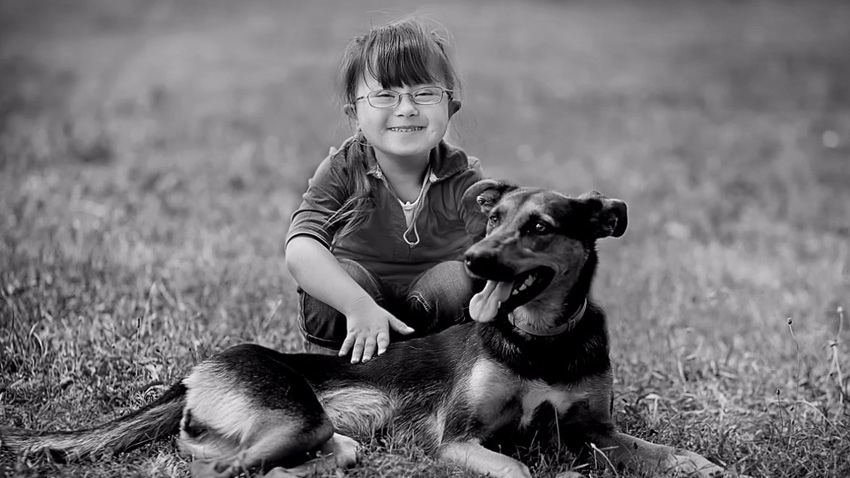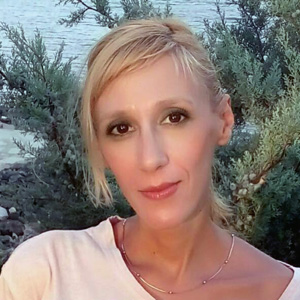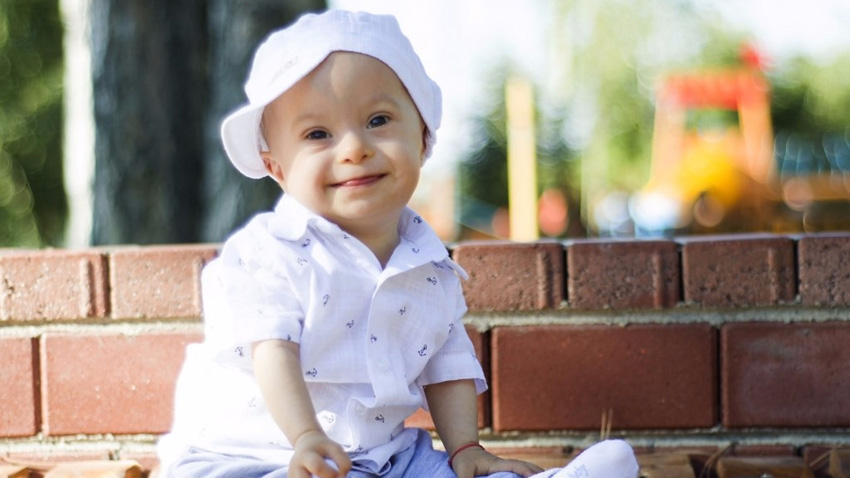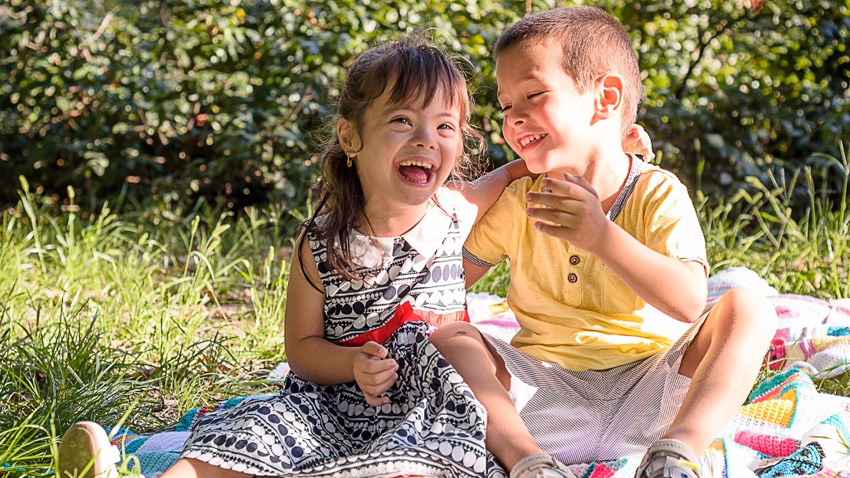Forty-seven looks like a neutral figure. Forty-seven chromosomes - only one word is added and things look differently, frighteningly: it's all about Down's syndrome. Forty-seven Smiles of kids with Down's syndrome will welcome visitors of the Seaside Park in Varna from today till 17 September. The photo exhibition has been organized by the association of their parents and the message is that life is better when there are more smiles around.

 Tony Marinova is one of the mothers who was faced with the problem of an extra chromosome and like any other parent suffered a shock. In 2009 she gave birth to her baby girl Yanitsa and today is grateful to the Association of Parents with Children with Down's Syndrome who helped her to stand back on her feet again.
Tony Marinova is one of the mothers who was faced with the problem of an extra chromosome and like any other parent suffered a shock. In 2009 she gave birth to her baby girl Yanitsa and today is grateful to the Association of Parents with Children with Down's Syndrome who helped her to stand back on her feet again.
“For me the diagnosis Down's syndrome was very frightening. I thought of it as something like a cruel verdict. But I was wrong - after the birth my life continued with a new rhythm and new things. For sure such a child is in need of greater care and dedication from parents but this does not necessarily mean suffering in the family. On the contrary, it depends on the point of view and on the regulations in a country.”
After the birth of Yanitsa her mom found out that doctors tried to intervene in the personal choice of the horrified parents:
 “In the maternal ward some doctors try to persuade mothers to abandon their children with Down's syndrome to institutions. However, today this syndrome is not what it used to be back at the time doctors studied medicine. Medicine has made progress and they ought to be aware of this. Some of them maintain the myth that kids with Down's syndrome tend not to live long. Today accompanying conditions are successfully treated, heart malformations are corrected by means of surgery and children have the chance to develop thanks to the adequate assistance of speech therapists, psychologists and other specialists. We read a lot online and contact with people across the world - this keeps us well informed. And above all, we have trust in our children. The fact that more often today they go to common schools and develop together with their coevals makes them very different from kids with Down's twenty years ago.”
“In the maternal ward some doctors try to persuade mothers to abandon their children with Down's syndrome to institutions. However, today this syndrome is not what it used to be back at the time doctors studied medicine. Medicine has made progress and they ought to be aware of this. Some of them maintain the myth that kids with Down's syndrome tend not to live long. Today accompanying conditions are successfully treated, heart malformations are corrected by means of surgery and children have the chance to develop thanks to the adequate assistance of speech therapists, psychologists and other specialists. We read a lot online and contact with people across the world - this keeps us well informed. And above all, we have trust in our children. The fact that more often today they go to common schools and develop together with their coevals makes them very different from kids with Down's twenty years ago.”

Unfortunately, more often than not teachers are not trained how to assist adequately children with special needs.
It is a matter of luck to come across someone who would trust in the child's potential and risk. Yanitsa was lucky - she goes to a common nursery school and is the special friend of all kids in her group. One day when her friends grow up they will kiss goodbye to still existing taboos about people with special needs. In the meantime, we could stop for a while in front of photographs of the smiling children - it is said that they also carry the syndrome of love.
English Daniela Konstantinova
The eagerly-awaited Tulip Parade at the University Botanical Garden in Balchik is at its peak. This year’s parade includes more than 45,000 bulbs, and 27 varieties that are new to the Garden, among them Tulipa "Carnaval de Nice, which combines..
In 2024, Bulgaria has 15,737 foreign students, making up 8.6% of all current students in the country. By comparison, this share has doubled over the past decade. This data comes from NACID , updated annually in the Bulgarian University Ranking..
Divers will clean the seabed around the port of Sozopol today, reports BTA. "Since 2018, we have been doing the cleaning, completely voluntarily, with our own resources, with the idea of doing something useful for everyone," said Nayden Nedev, diving..
Looking and feeling your best doesn’t have to come at a high price — especially in Bulgaria. The country has become a rising star in beauty tourism,..
Residents and visitors to Sofia will have the opportunity to learn more about Bulgarian scientists working in Antarctica and their important role in the..
The prices of Easter goods are rising The Easter meal in the Balkan countries will be more expensive this year, BTA reports...

+359 2 9336 661
